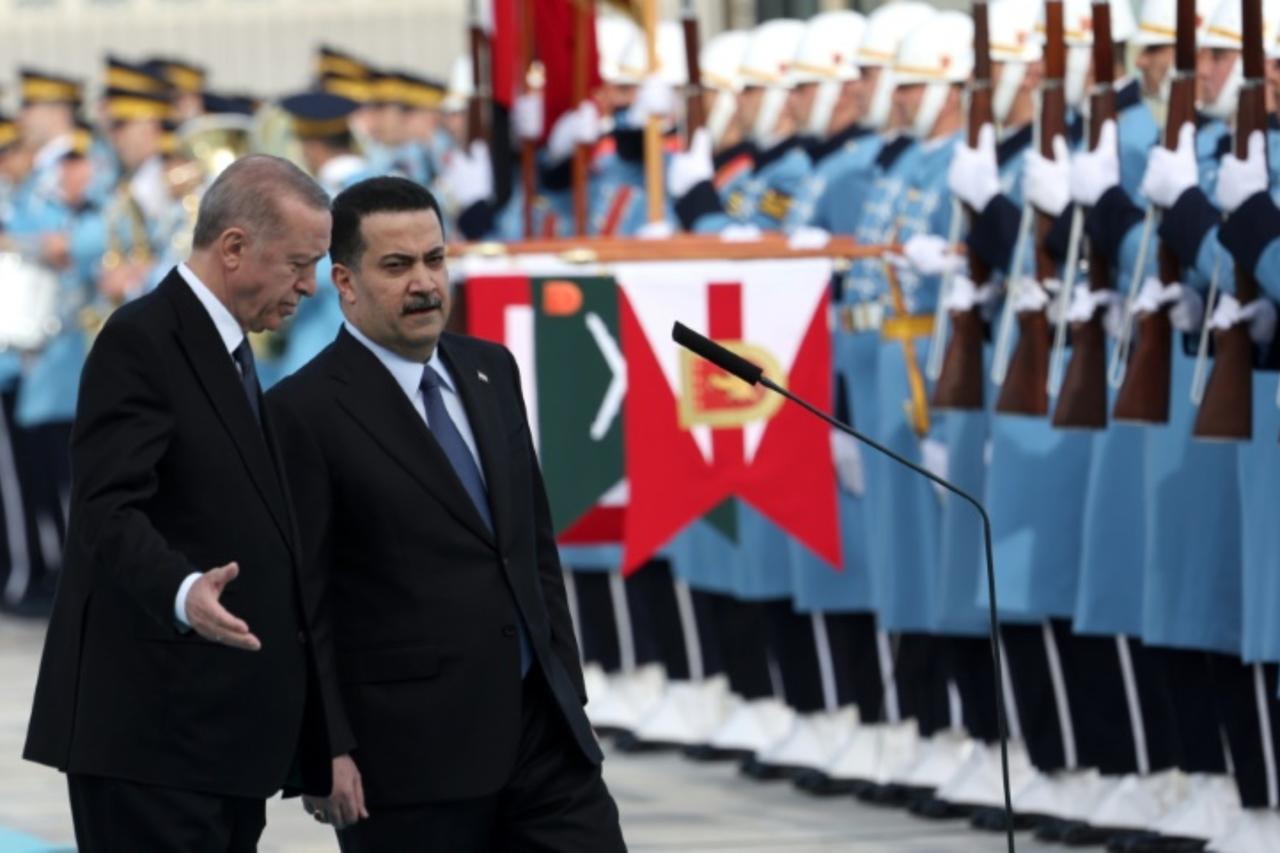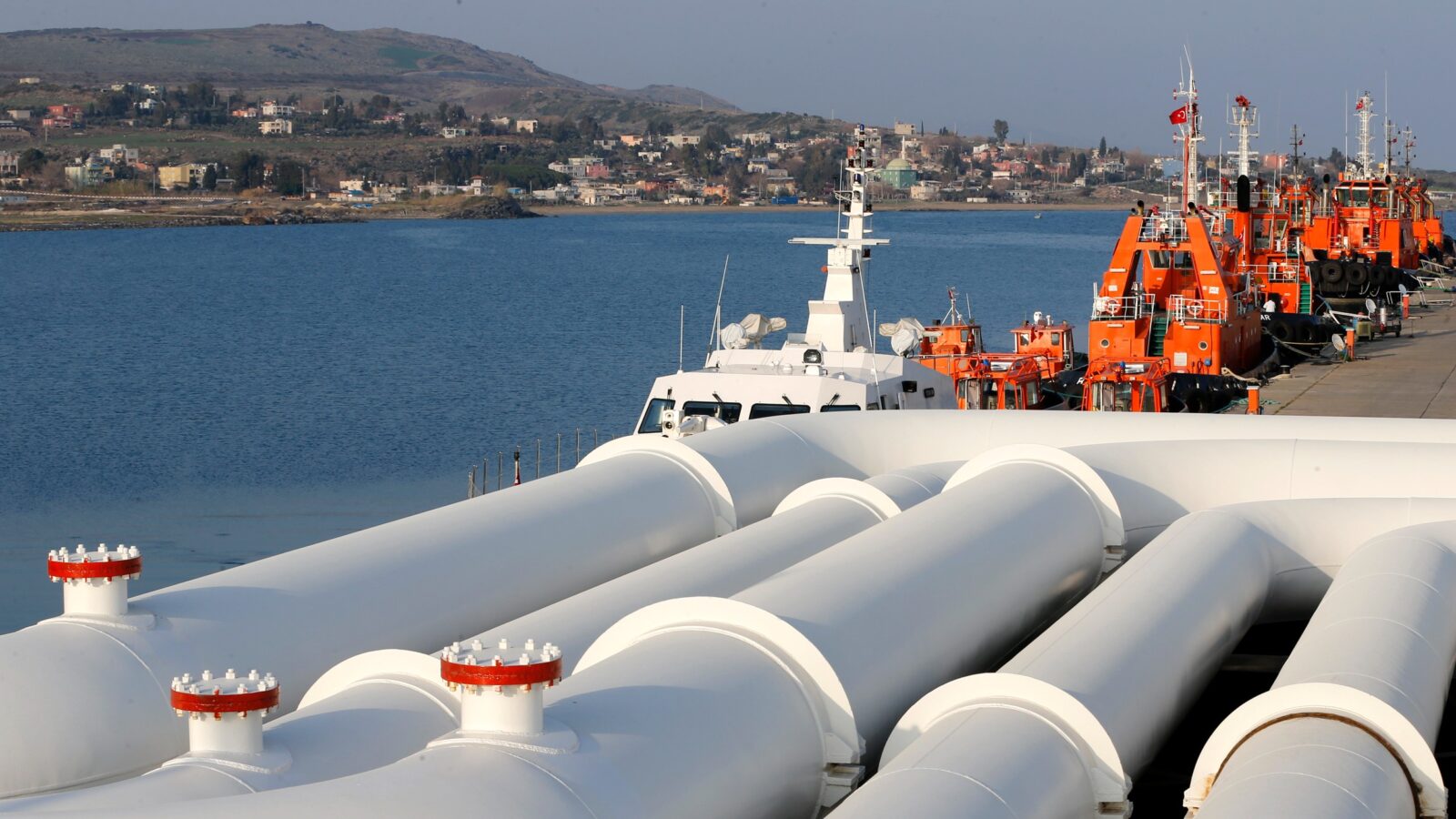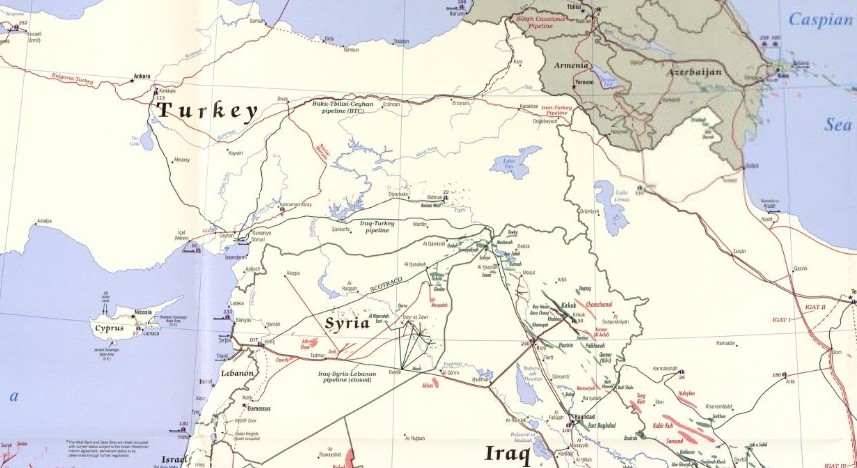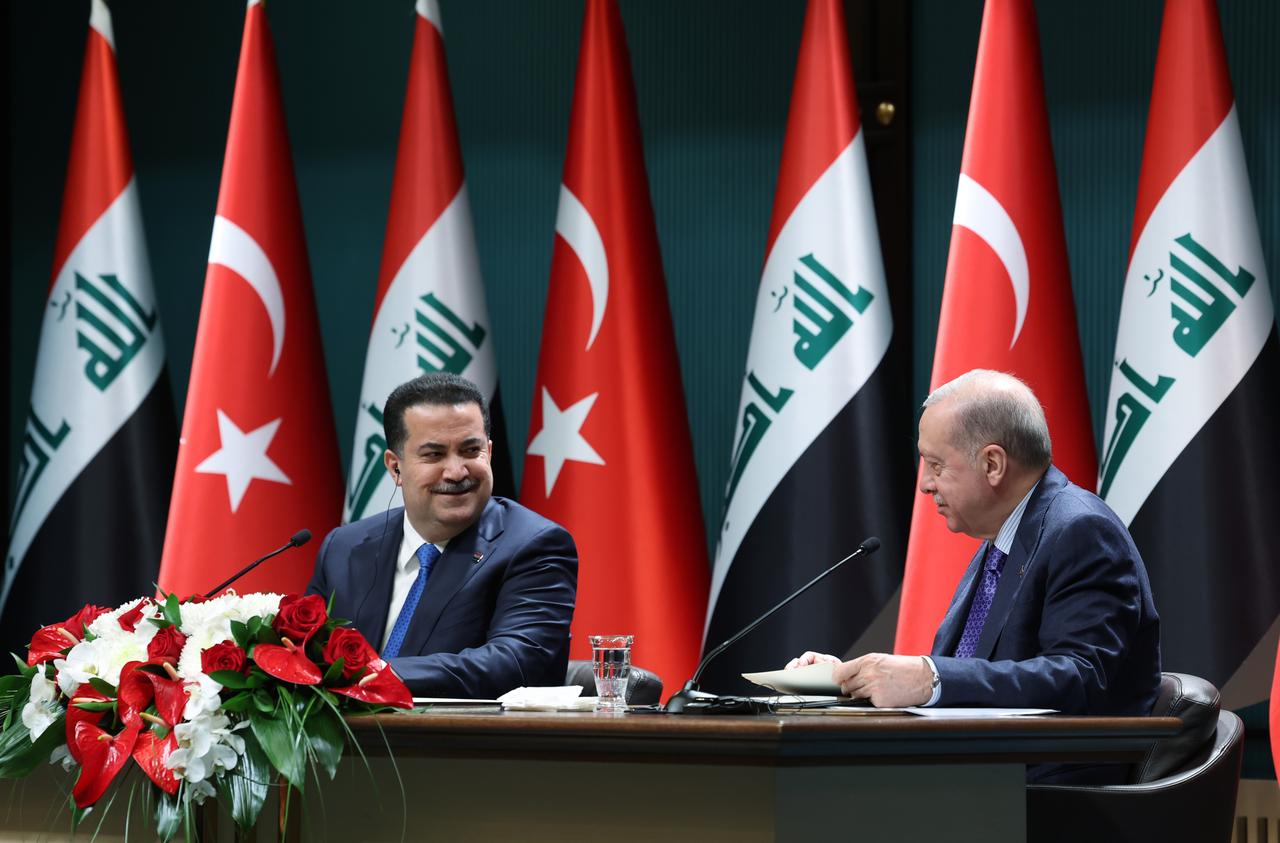
President Recep Tayyip Erdogan met with the Iraqi Council of Representatives Speaker, Mahmoud al-Mashhadani, in Ankara on Tuesday. The high-level meeting came just three weeks after the Iraqi prime minister’s visit and covered a broad agenda—from the Development Road project and transboundary water management to the ongoing crisis in Gaza.
Yet, one of the most strategically consequential but still unresolved issues remains the fate of the long-idled Kirkuk-Ceyhan oil pipeline, a corridor whose future could reshape regional energy dynamics.
On the same day, Kurdistan Region Prime Minister Masrour Barzani and Iraqi Prime Minister Mohammed Shia al-Sudani were scheduled to hold a phone call Tuesday evening to address ongoing disputes over oil revenues and public sector salaries.
The conversation follows four days of negotiations between delegations from Erbil and Baghdad, amid reports that the two sides have already reached a preliminary agreement.

The Kirkuk-Ceyhan oil pipeline has remained shut down for over two years after operations ceased. This key corridor, carrying crude from northern Iraq to the Mediterranean, has been paralyzed since March 2023 following an international arbitration ruling against Ankara.
The pipeline, jointly operated by Türkiye’s state-owned BOTAS and Iraq’s State Oil Marketing Organization (SOMO), was halted after the International Chamber of Commerce determined that Türkiye had violated a 1973 bilateral agreement by allowing the Kurdistan Regional Government (KRG) to export oil independently through the Ceyhan terminal, sidestepping Baghdad. The ruling led to a $1.5 billion penalty against Türkiye.
Despite repeated claims by Turkish officials that the pipeline is technically ready to restart, progress has stalled. President Erdogan’s 2024 visit to Baghdad, expected to bring a breakthrough, ended without a deal, as it’s more of an internal deadlock of the Iraqi state.
In the meantime, Türkiye is losing an estimated $400 million in transit revenue.

While talks with Erbil remained stalled earlier in 2025, Baghdad pressed ahead with efforts to diversify its export infrastructure. Frustrated by the ongoing impasse, Iraqi authorities moved to revive the long-defunct Kirkuk-Baniyas pipeline—a corridor connecting Iraq’s northern oil fields to Syria’s Mediterranean coast.
With shifting dynamics in Damascus and indications of interest from the new Syrian administration, the project gained renewed political traction.
Inactive for decades due to conflict and neglect, the pipeline is once again under serious consideration. If reactivated, it could carry over 300,000 barrels of oil per day, giving Iraq a direct route to global markets via the Mediterranean and allowing it to bypass both Turkish and Kurdish territories entirely.
Despite the extensive damage Syria’s civil war inflicted on the country’s infrastructure, the Baniyas Port remains functional. A fully operational Kirkuk-Baniyas corridor would not only provide Baghdad with a strategic alternative but also pose a challenge to Türkiye’s role as the region’s primary energy transit partner.
That momentum, however, began to shift following a high-level phone call in February between Iraqi Prime Minister Mohammed Shia al-Sudani and U.S. Secretary of State Marco Rubio. According to official readouts, both sides underscored the urgency of restoring oil flows from the Kurdistan Region and reactivating the Iraq-Türkiye Pipeline.
Sudani and Rubio “agreed on the need for Iraq to become energy independent, to quickly reopen the Iraq-Türkiye Pipeline, and to honor contractual terms for U.S. companies working in Iraq to attract additional investment.”
Still, Baghdad may keep the Kirkuk-Baniyas option in its back pocket for the long term, particularly if it concludes that its interests are not being adequately secured through the Ceyhan route.
Negotiations between Iraq’s federal government and the Kurdistan Regional Government (KRG) have once again ended without a conclusive agreement, as longstanding disputes over oil exports and public sector salaries continue to block progress.
The most recent round of talks, which stretched over four days and resulted in a tentative understanding on June 29, failed to bridge core differences.
At the heart of the deadlock is a dispute over revenue control. Baghdad maintains that all oil and non-oil income—including customs duties and taxes—must be transferred to the federal treasury, viewing these as sovereign revenues.
In return, the KRG is allocated 12.67% of the national budget under Iraq’s 2023–2025 spending framework, conditional on delivering 400,000 barrels of oil per day to the State Oil Marketing Organization (SOMO).
The allocation of those barrels, however, remains a point of friction. The federal government is pressing for the full volume to be routed through the national export system, effectively halting the KRG’s independence in using the oil.
A potential compromise, allowing 280,000 barrels for export and keeping 120,000 for domestic use in Erbil, has been floated but remains unofficial and unratified. With both sides entrenched, a sustainable solution remains elusive.

Türkiye remains well-positioned to play a constructive role in resolving the ongoing impasse over the Kirkuk-Ceyhan pipeline. Its long-standing political and economic ties with the Kurdistan Regional Government (KRG), along with its track record in regional energy diplomacy, offer Ankara the leverage needed to act as a mediator between Baghdad and Erbil.
Supporting a stable, mutually acceptable revenue-sharing arrangement could help reduce tensions and pave the way for the resumption of oil exports through Turkish territory.
At the same time, Ankara may create a projection with its energy strategy regarding Syria to leave no room to lose.
Offering technical support for infrastructure repair in Syria could allow Türkiye to reposition itself not as a competitor to the Baniyas route but as a potential collaborator.
This could mitigate the strategic risk posed by alternative pipelines and restore Ankara’s centrality in regional energy transit.
With economic losses mounting and geopolitical influence at stake for every side, Türkiye’s ability to act decisively could determine whether it maintains its strategic foothold or risks being bypassed for itself and its neighbors.